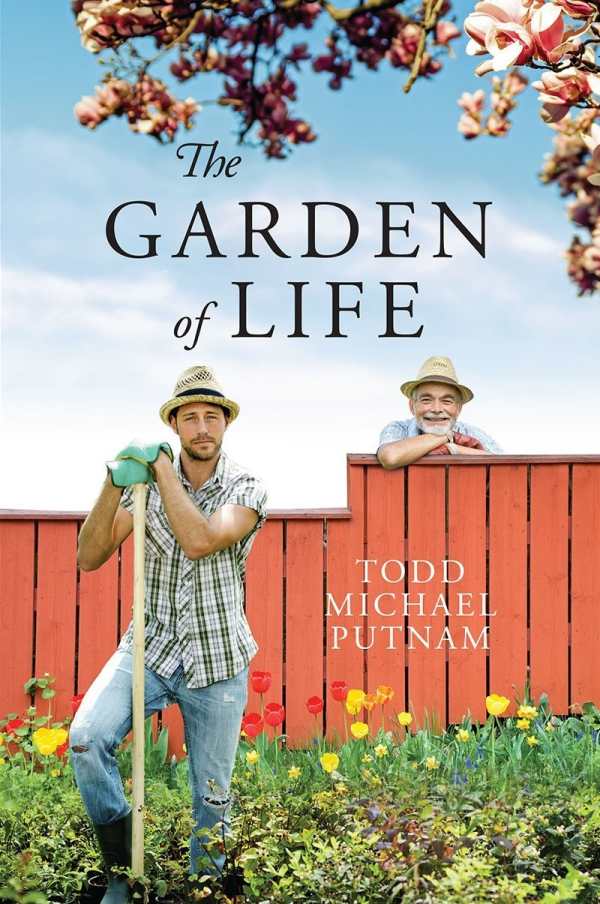The Garden of Life
The Garden of Life is a beautiful little book with a bountiful message that is ripe for reading and rereading.
In The Garden of Life, by first-time author Todd Michael Putnam, a young and mindful gardener offers life lessons to a gruff old man. The book is an insightful and instructional story that explores themes of mindfulness and purposeful living.
The book contains nine chapters—each one a parable—that use metaphors of gardening and nature to highlight how the differences in attitude between the Old Man and his neighbor, the Young Gardener, affect their daily actions and ability to be joyful and peaceful. In the first chapter, for example, the Old Man grumbles about the weeds in his garden. He concludes that pulling them is a “big waste of time and effort.” Meanwhile, the Young Gardener accepts that “I shall be weeding as long as I have my garden.”
In the chapter titled “The Storm,” a storm devastates the Old Man’s garden and destroys the Young Gardener’s beloved Blossom Tree. The Old Man is angry and bitter, but the Young Gardener understands that “great loss is a part of this life.” Though he grieves, he moves forward and replants his garden.
This short and inspiring book boasts a clear and colorful cover as well as a visually appealing layout of the narrative, with its clear font and small, precise black-and-white spot illustrations. The format of each story is simple and engaging. Chapters are introduced by evocative and descriptive titles that conjure up images of nature’s bounty while inspiring contemplation, such as “Heart of the Garden,” “Fruits, Vegetables, Flowers & Fish,” and “A Fork in the Road Where there is None.” Following each story are “Gardening Tips” that offer life lessons, such as “Do not be discouraged as new weeds pop up in your life” and “Joy is a purpose worth planting.” The chapters conclude with introspective pondering under the heading “Ask Your Inner Gardener.”
The Garden of Life is faith-based, mentioning God several times. But rather than preaching religious views, the book’s message and lessons focus on self-awareness and becoming more mindful and grounded. The main characters are multi-dimensional, and Putnam offers a fresh perspective by using the Young Gardener as the teacher, rather than the Old Man. By placing his lessons of purposeful living within the relatable context of earth, nature, weeds, flowers, and storms, Putnam makes his parables accessible to a wide audience, while also preventing the message from becoming obsolete.
The Garden of Life is a beautiful little book with a bountiful message that is ripe for reading and rereading.
Reviewed by
Maya Fleischmann
Disclosure: This article is not an endorsement, but a review. The publisher of this book provided free copies of the book and paid a small fee to have their book reviewed by a professional reviewer. Foreword Reviews and Clarion Reviews make no guarantee that the publisher will receive a positive review. Foreword Magazine, Inc. is disclosing this in accordance with the Federal Trade Commission’s 16 CFR, Part 255.

